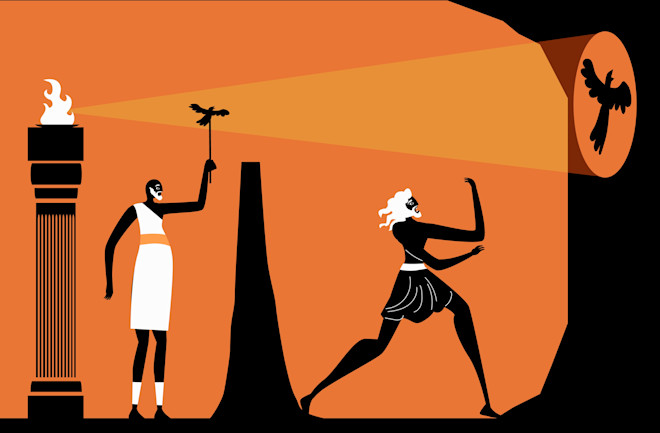Plato’s Theory of Forms addresses the question of how we know that an object, such as a table, is what it is, even though we may never have seen it before and even though it might look entirely different to any table we have ever seen.
Plato’s answer is that a table gets its “tableness” because it partakes of the perfect Form of a table. This Form is an ideal, absolute, timeless entity that is the essence of tableness but that we cannot experience directly.
In his Allegory of the Cave, Plato famously explained that the world of Forms is not accessible to human senses and that all we experience are the imperfect shadows of Forms, as if they were cast by firelight onto the walls of a cave.

